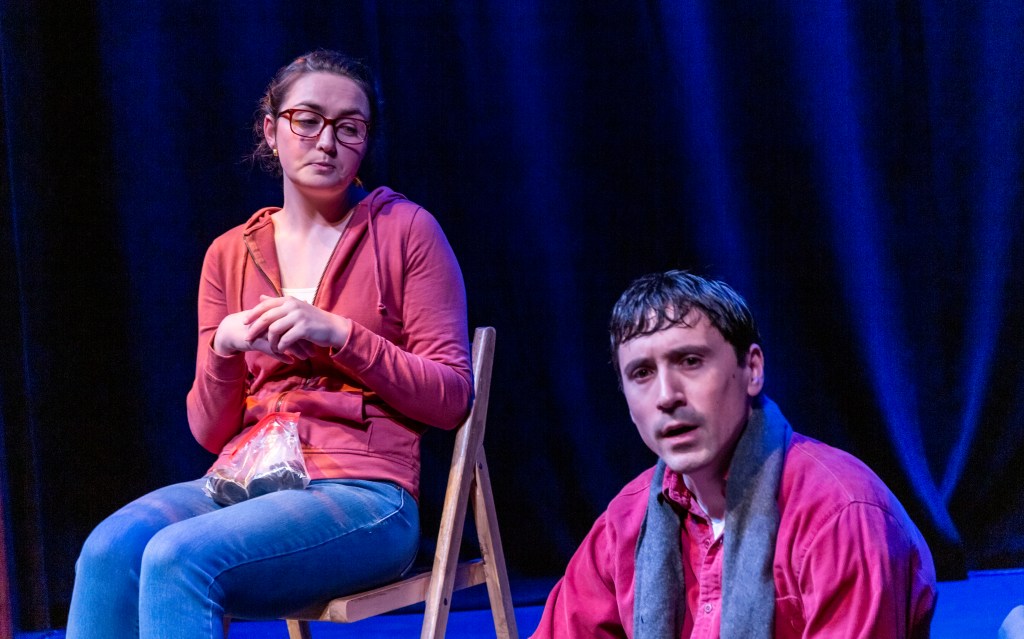In the new play George and Emily Get Married, writer and director Rick Mokler has created a play in the spirit of Thornton Wilder’s Our Town, borrowing characters and concepts and applying them to a 21st-century courtship. In Our Town, George and Emily are young lovers in the early 1900s. In George and Emily Get Married, George and Emily are a contemporary, early-thirties couple on their wedding day. It’s less of a straightforward narrative than it is a rumination on the evolving concept of marriage, formulated in the structure of one couple’s wedding day.
George and Emily is not a comedy, though there are funny moments; nor is it really a drama, in that there’s very little conflict. Instead, it’s an earnest look at well-adjusted people of some privilege as they perform an example of a wedding. The bride (Addison Clarke) and groom (Robert Moris Castillo) seem happy, and their families, despite any personal misgivings, are friendly and supportive. There’s some emotional struggle between Emily’s estranged parents (DD Howard and Paul Canter), but they keep it polite. As far as weddings go, it’s a lovely event. As far as stories go, it’s a gentle trot around the track with soft turns and relatively low stakes.
What works well for this intimate production in the Jurkowitz Theatre are the meta constructions that give the entire show a layer of stylish theatricality. Highlights include a brief “pause” from the play action for a lecture from Professor Willard (Nancy Nufer) about the history and social ramifications of marriage. These types of broken-fourth-wall storytelling techniques are inspired by Our Town and are an entertaining nod to the source material.
George and Emily Get Married is presented by the SBCC Theatre Group and runs through April 29 on the SBCC campus. See theatregroupsbcc.com.

